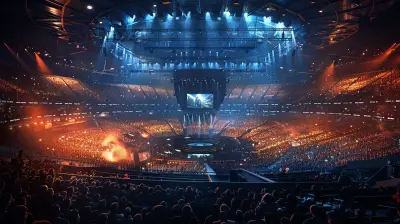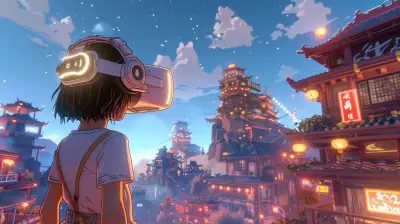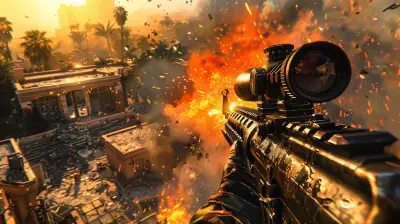The Impact of Pop Culture on Game Collectability
3 August 2025
Let’s talk about something seriously cool and wildly unpredictable: the wild, winding, and oh-so-ridiculously fun world of game collectability — and how pop culture keeps shaking it up like a snow globe in a sandstorm.
If you've ever scrolled through eBay wondering why someone’s paying rent-money for a Pokémon cartridge with a cracked label, or why boxed copies of 90s RPGs are going for more than your car, welcome to the party. Behind many of these jaw-dropping game prices and trends? One sneaky puppet master: Pop Culture.
So grab your favorite cup of nostalgia, because we’re diving deep into how movies, TV shows, memes, celebrities (yep, even them), and fandoms are turbo-charging the demand (and price tags) for video games — especially the collector-worthy ones.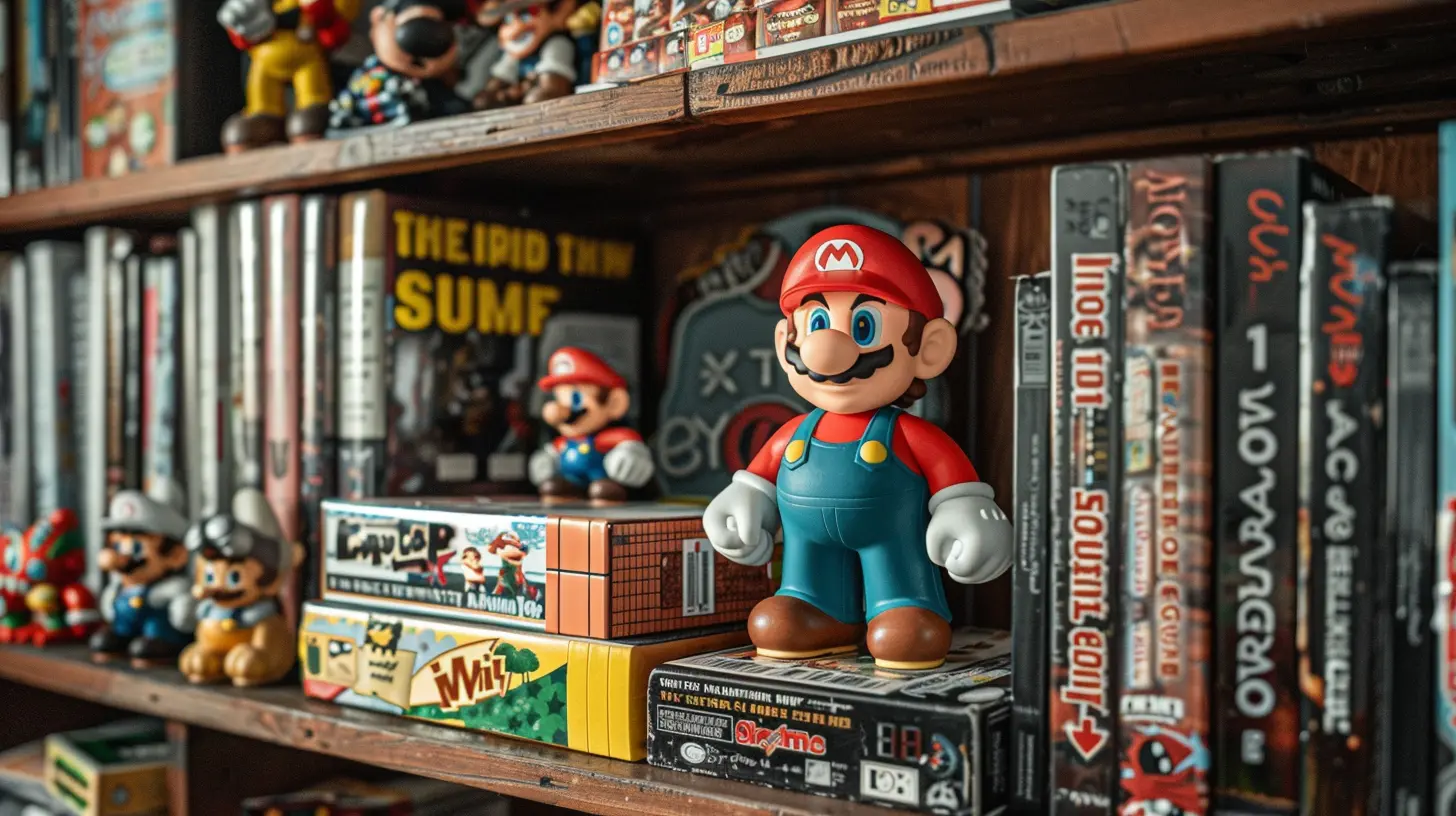
What Exactly Makes a Game a "Collectible"?
Before we crack into the pop culture side, let’s get on the same coin here. A collectible game usually ticks a few boxes:- It’s old (but not too old — there's a sweet spot)
- Hard to find or limited edition
- Often tied to a popular franchise
- Comes with original packaging or something special (stickers, manuals, holographic cards? Yes, please!)
- And — spoiler alert — it’s had a pop culture moment
People collect games not just to play, but to own a piece of history, nostalgia, or even bragging rights.
And once you throw pop culture into the mix? That’s when stuff goes nuclear.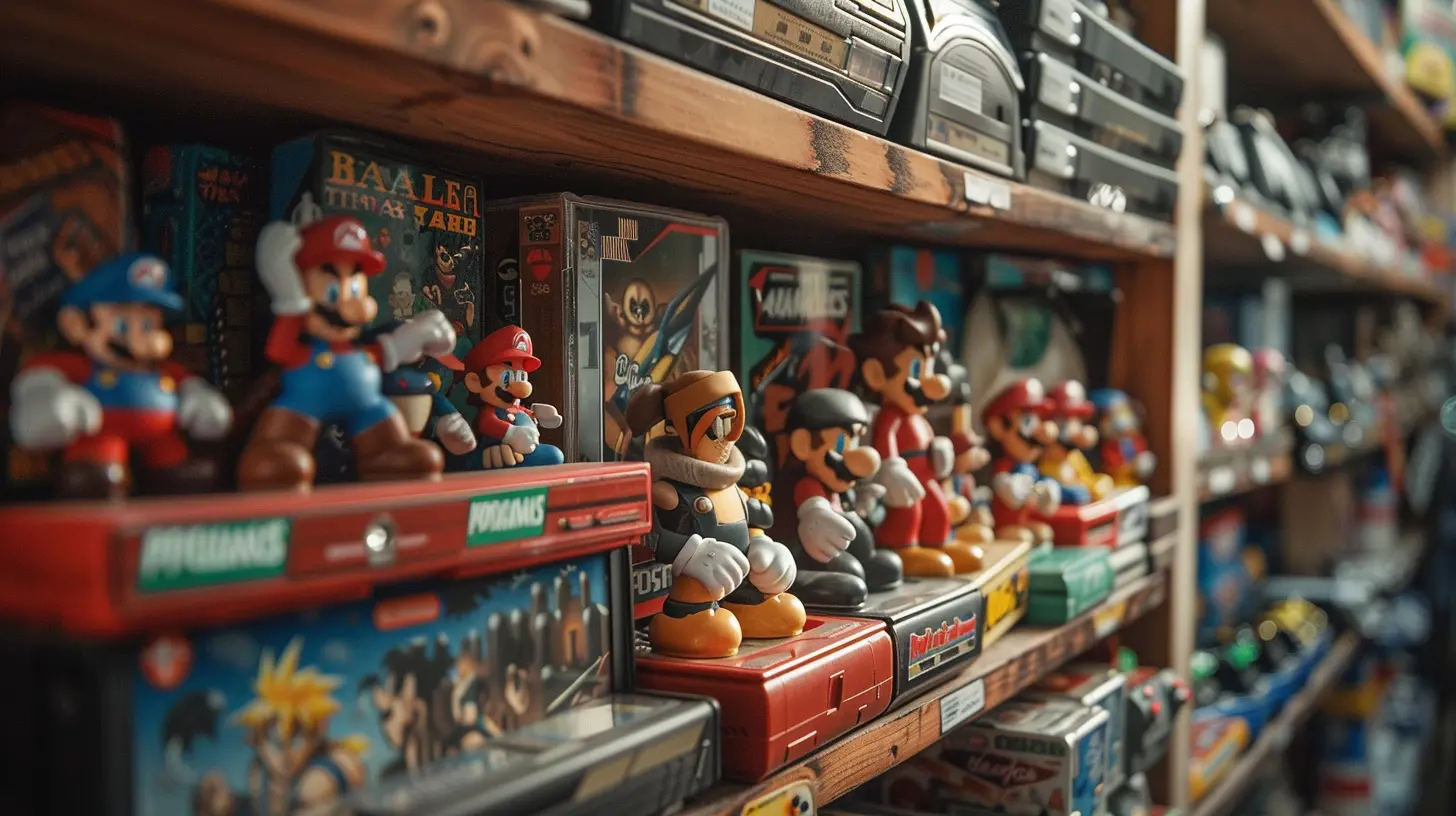
How Pop Culture Fuels Collectability
1. Nostalgia Waves Crashing In — Thanks to Reboots and Remakes
Ever notice how right after a new movie or series drops, suddenly the retro titles related to it become hot property?Take Final Fantasy VII. When the remake was announced, prices for the original PlayStation version began to climb. Why? Simple: people wanted the OG experience before diving into the shiny new world. Plus, collectors sensed the hype and pounced.
The same happened with The Legend of Zelda series, especially after new releases like Tears of the Kingdom. When Zelda is trending… everything Zelda is trending.
> Nostalgia isn’t just a warm feeling — it’s a marketing rocket launcher for collectability.
2. Memes and Viral Moments = Instant Value Boosts
Who would’ve guessed that a meme could inflate the price of a game?Well, let me introduce you to Big Chungus. Yep, that meme of Bugs Bunny as a chonky legend led to a fictional game becoming a collector’s target — some even created physical "Big Chungus PS4" game cases (no joke) that sold on eBay.
And don't forget Among Us. It started as a tiny indie game in 2018, but after the pandemic and Twitch streamers got involved in 2020 — BOOM — it exploded. Now, merch, special editions, and sealed physical releases (which originally weren’t even a thing!) are sought-after by collectors.
Memes breathe new life into forgotten titles or indie gems. One good tweet? That game’s going places.
3. Celebrity Endorsements and Influencer Hype
You know how sneakers blow up when a rapper wears them? It’s the same with games.When celebrities share their love for retro games — or better yet, post their mega collections — it sparks a frenzy. Logan Paul wearing a million-dollar Pokémon card around his neck during a boxing match? That moved markets.
Streamers like PewDiePie, Pokimane, or real-life collector YouTube channels like MetalJesusRocks or The Gaming Historian can accidentally send a game’s value skyrocketing just by talking about it.
It’s modern-day magic: one shout-out = thousand-dollar price tag.
4. Movies and Series That Resurrect Game Franchises
Let’s talk The Witcher. The Netflix series introduced millions to the world of Geralt, and guess what happened? Sales of The Witcher 3: Wild Hunt surged. Even the older games in the series, which had been chilling quietly in the "bargain bin" zone, picked up value.When Castlevania got a Netflix show, guess what flew off the digital shelves? Yep — Symphony of the Night and its vampire-infused pals.
And don’t forget The Last of Us HBO series. After it debuted, prices for limited physical editions of the game started climbing fast. It’s like Hollywood gives these games a second (or third!) life.
5. The Rise of Retro Gaming Culture
Retro isn’t just a vibe — it’s a whole movement. Pop culture feeds into it like fuel to a pixelated fire.You’ve got Instagram accounts dedicated to ‘90s setups, TikTokers showing off Game Boy mods, and YouTubers doing thrift-shop hauls. Each post is like an ad campaign that the games didn’t even pay for.
When retro becomes trendy, people rush to find the real deal. And the more people who want it? The rarer (and more expensive) it becomes.
6. Limited Editions + Pop Culture = Goldmine
Ever try getting your hands on a limited edition Pokémon game with special packaging? It’s like competing in the Olympics... blindfolded… on one leg.Game companies know the pop culture trap is real, and they lean into it hard.
Think:
- Fortnite x Marvel limited skins and discs?
- Cyberpunk 2077 Collector’s Editions with Johnny Silverhand swag?
- Animal Crossing: New Horizons Switch Consoles flying off shelves like hotcakes?
Once tied to a cultural moment or crossover event, these editions gain collectability status simply because they’re attached to a bigger pop narrative.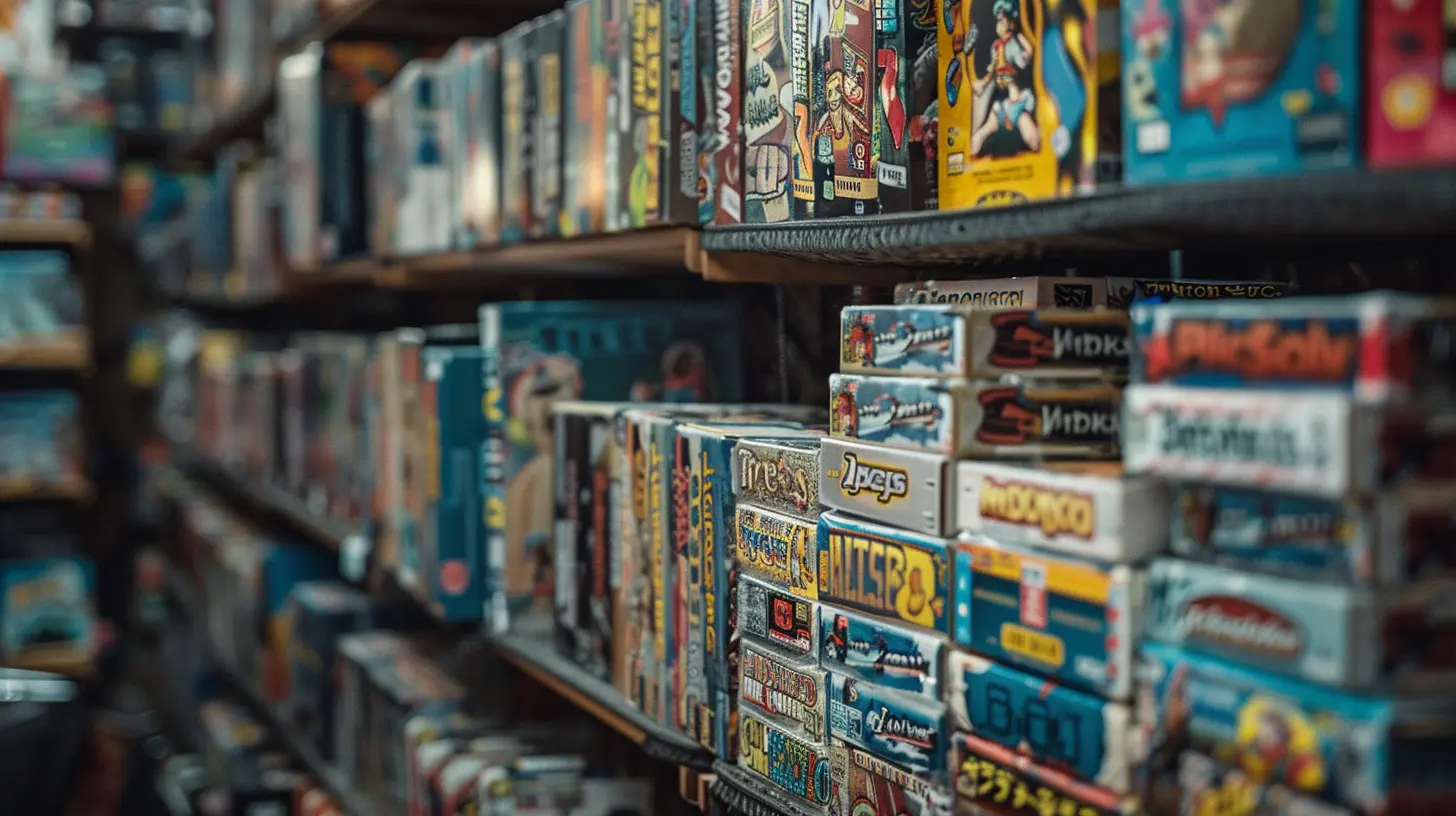
How Pop Culture Influences Game Prices (This Gets Wild)
Let’s break it down with some juicy examples, shall we?🔥 Pokémon: The Unbeatable Collectible Franchise
From childhood TV shows to Hollywood blockbusters (Detective Pikachu, anyone?), Pokémon is a global pop culture monster.That’s why boxed versions of Pokémon Red, Blue, or Yellow can fetch hundreds — or thousands — especially if they’re graded (yep, like baseball cards). Even modern releases like Pokémon Sword and Shield special editions climb in value post-hype.
Pokémon = the golden goose of gaming pop culture.
🎸 Guitar Hero: From Mainstream Fame to Rarity
In the mid-2000s, Guitar Hero was everywhere. Then it disappeared… and now? Some of its rarer bundles (especially sealed with guitars) are creeping up in value. Nostalgia from millennials and TikTokers picking up plastic guitars means pop culture is breathing life back into this dormant era.🧟 Resident Evil: Zombie Apocalypses Are Always Trendy
Every time a new Resident Evil movie, reboot, or Netflix series launches — even if it’s just okay — interest in the older games lights up like a haunted mansion on fire.People hunt down vintage versions, collectibles like limited figurines, and even obscure spin-offs. Pop culture doesn’t even need to try that hard — zombies sell themselves.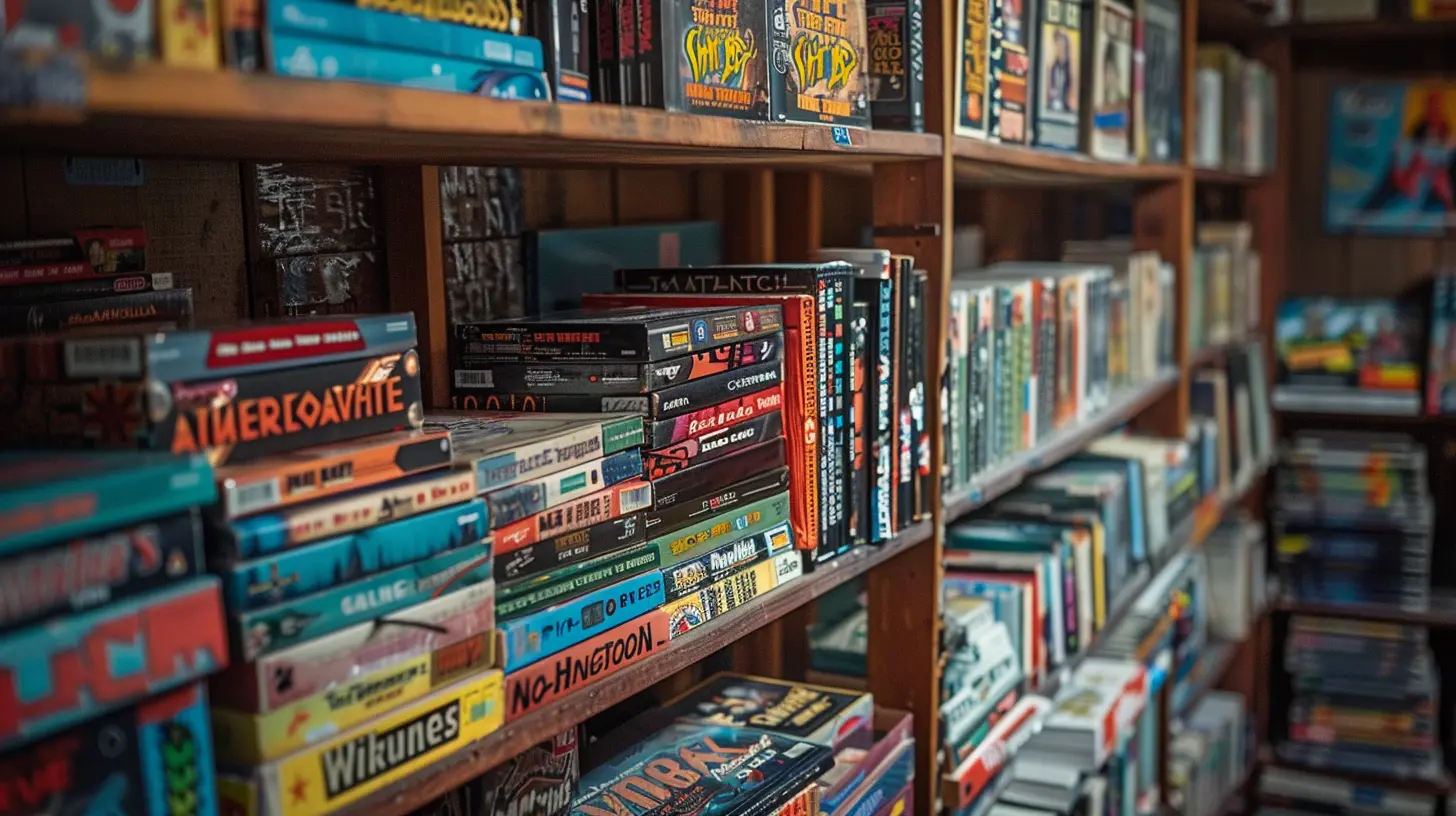
Why Game Collecting Is Now a Pop Culture Hobby
You don’t need to be a historian or hardcore gamer to get into game collecting anymore. Thanks to pop culture, it’s become stylish — even chic.People post their shelves like they post selfies. Showcasing your copy of EarthBound is the new flex. And with retro gaming cafes, museum exhibits, and nostalgia remakes hitting all the time, game collecting is now part of the cultural conversation.
Heck, it's not just a hobby anymore — it’s a lifestyle.
Tips for New Collectors Riding the Pop Culture Wave
Thinking of diving in? Here's a cheat sheet to help you outsmart the hype and actually enjoy the ride.🕹️ 1. Follow Trends, But Be Smart
If a reboot or show is confirmed, check out the original game's market. Buy early before prices spike, but don’t fall for every rumor.🎨 2. Condition Really Matters
Pop culture might boost interest, but sealed or mint-condition games will always win long-term. Cracked cases and missing manuals? Less appealing than a pizza with no cheese.📦 3. Don’t Ignore Handhelds
Game Boy, DS, and PSP titles are becoming more collectible — especially when tied to big franchises like Pokémon, Zelda, or Final Fantasy. These gems often fly under the radar.🔄 4. Watch the Market After Big Events
Was a trailer just dropped at E3 or The Game Awards? Prices for related older games can double overnight. Keep an eye on those collector forums and Reddit threads.🤝 5. Join the Community
Reddit, Discord, YouTube, and Twitter are goldmines for insight. Collectors love sharing tips, finds, and deals. Sometimes, they’ll even hook you up before the flippers get there.Final Thoughts: Pop Culture Is the Secret Sauce
At the end of the day, collecting video games is like treasure hunting in a time machine. And pop culture? It’s the map that lets you know where the gold is buried.Every time a childhood memory resurfaces, a remake launches, or a meme goes viral — the ripples hit the collector’s market in a big way. From classic cartridges and long-lost handhelds to boxed console bundles, games are no longer just for playing.
They’re cultural artifacts, time capsules, and yes… even investments.
So next time you're watching a nostalgic Netflix series or see your favorite YouTuber crack open a retro gem, maybe take a quick peek on eBay. You might just strike gold.
Game collecting isn’t just for the elite anymore — thanks to pop culture, it’s for everyone with a controller in one hand and a dream in the other.
all images in this post were generated using AI tools
Category:
Game CollectingAuthor:

Leif Coleman
Discussion
rate this article
2 comments
Grace Sullivan
Great read! Pop culture truly enhances the charm and value of game collecting!
January 20, 2026 at 5:00 AM

Leif Coleman
Thank you! I'm glad you enjoyed it. Pop culture definitely adds a unique dimension to game collecting!
Miranda McAdoo
Great article! It's fascinating how pop culture shapes the way we collect games. From nostalgic classics to modern hits, the connections we make with movies, shows, and trends really add to the value and excitement of building a collection. Can't wait to see what’s next!
August 16, 2025 at 3:23 AM

Leif Coleman
Thank you! I'm glad you enjoyed the article. Pop culture indeed plays a huge role in shaping our gaming collections, and I’m excited to explore its evolving influence further!
